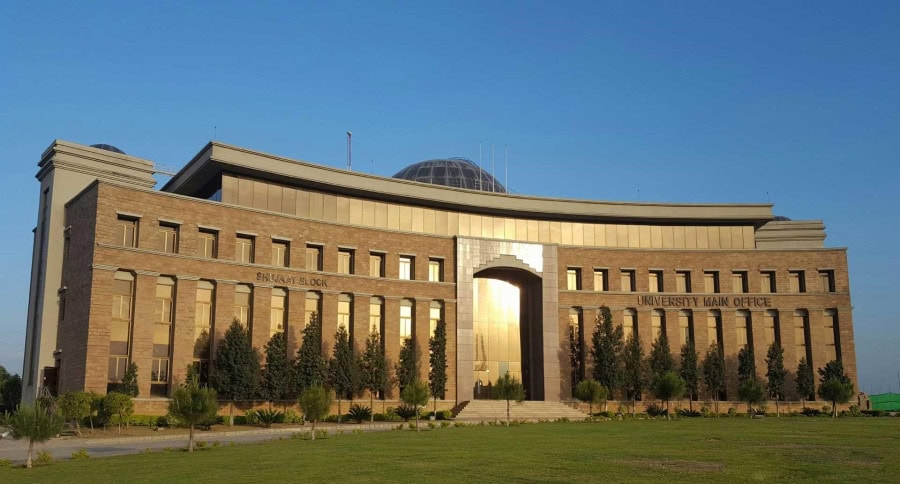Islamabad: A landmark in the field of Science and technology in Pakistan, as work on the first artificial intelligence (AI) lab at the National University of Science and Technology (NUST), under the CPEC has neared completion.
75% of work on Pakistan’s first high-standard artificial intelligence laboratory under the CPEC at the NUST has been completed, with the equipment installation nearly complete.
Read: CPEC & BRI: Beacon of hope and beasts of humanity | By Dr Mehmood Ul Hassan Khan
With the help of NUST and the Guangzhou Institute of Chinese Academy of Sciences, the CPEC–Qingluan Artificial Intelligence Laboratory was officially formed at NUST at the start of this year.
“At the moment, we’re working on research, development, and customisation. I would say the work is virtually done to a 75 per cent completion rate,” Muhammad Khubaib Shabbir, Deputy Director of NUST’s China Study Center, said.
The AI lab is now fully operational, and both students and faculty members are eager to investigate Pattern and Facial Recognition algorithms.
“At the moment, the primary projects in progress are the Cogniser-V1 intelligent video analysis project, which is a pilot project with the Pakistani government, and GymBot, a commercial initiative,” Muhammad Khubaib Shabbir revealed.
“Ideally, Cognizer-V1 is one of the most advanced surveillance equipment, capable of converting standard cameras and surveillance equipment into Smart Equipment through the use of AI and Computer Vision Algorithms,” Muhammad Khubaib Shabbir stated.
Pakistan, with the world’s sixth-largest population, is gifted with a vast number of artificial intelligence application scenarios and a sizable market. Furthermore, there is never a shortage of talent in the country.
The commercialization of scientific results, on the other hand, poses a significant challenge that can be considered one of the drivers of innovation.
The advancement of commercialization in Pakistani scientific research institutes has been exceptionally slow because of backward industrial conditions and the hindrance of international interactions during the pandemic.
“To complete the product, experts from many sectors are joining the research team. The essential functions have already been developed. Now what the team is doing is developing additional modules to integrate and research new areas to better customise the device,” Muhammad Khubaib Shabbir shared his insights.
“It’s vital to remember that the source code for ‘GymBot’ was released by the Guangzhou Institute of the Chinese Academy of Sciences. This provided Pakistani academics with firsthand knowledge of the most recent AI developments, allowing them to learn from them, improve them, and make them more useful to the local society. This would undoubtedly provide Pakistanis with new prospects.”
It takes a long time to get an idea from the lab to the market. Researchers and stakeholders must manage the time-consuming transition from academic to commercial contexts, as well as strike a balance between stakeholders’ and researchers’ competing interests.
CPEC enables the exchange of advanced concepts, from both technical and management levels. Qing Luan lab can be one of the successful examples.










